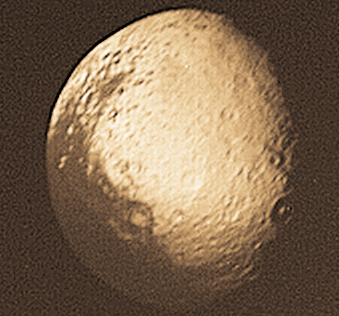Astronomy Picture of the Day
Discover the cosmos! Each day we feature a different image or photograph of our fascinating universe, along with a brief explanation written by a professional astronomer.
October 15, 1995

Iapetus: Saturn's Disappearing Moon
Credit:
NASA,
Voyager,
Copyright Calvin J. Hamilton


